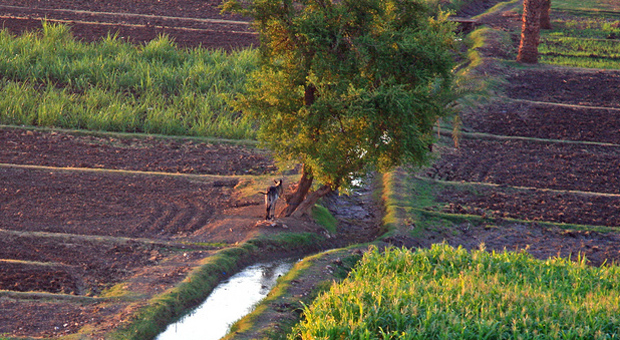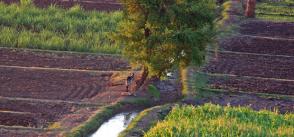
Simple & low-cost technology for water saving in Mediterranean agriculture
Water saving is a prerequisite for sustainable development in the Mediterranean, particularly in areas with limited water availability and water scarcity.
Major problems with water resources management in the region arise from the pressure to meet food demand as well as domestic needs in urban and rural areas, industrial and energy needs of a fast growing population. The highest pressure is played by agriculture, as 70% of water resources are used in farming activities.
Despite sophisticated available water technologies, the water volumes used at the level of single farms are often estimated or not known.
Numerical water models must be fed with reliable and continuous data of farmer’s consumptions and water distribution modes depending on seasonality, climate, type of crop, market, cultural and socio-economic environment.
(Water card | video by Mediterranean Agronomic Institute of Bari)
Reliance on high-tech water-saving solutions at farm level tends to dominate the scene. In southern Mediterranean countries, particularly in developing areas, such solutions must be supported by simple, low cost and sustainable technologies, to be adapted to specific needs and socio-economic context, aiming at involving farmers and making them responsible for their use.
A low-cost and user-friendly technology – an Electronic Water Delivery Device - has been developed by a private high-tech firm in collaboration with Dr. Nicola Lamaddalena of Bari (IT) Institute of CIHEAM (Centre International de Hautes Etudes Agronomiques Méditerranéennes, www.ciheam.org), to assist water users’ associations and water management Authorities to control water consumptions with the direct participation of farmers. The device is a fully automated technology controlling water delivery to farmers, or users’ associations, through an electronic card.
This system was designed in the early 90s with the objective of providing an innovative solution to the optimization of water distribution and the sustainable exploitation of water resources, on request of several Water Management Authorities of North and South Mediterranean countries.
The basic system design assumptions are:
- Knowing and charging to single users the water volumes really used or withdrawn
- Equitable distribution of water among users on the basis of seasonal water availability
- Supporting arranged-demand delivery schedules.
The fulfillment of these goals has been achieved through the development of autonomous water delivery devices controlled by a self-powered electronic card. Water is withdrawn by the farmer through an electronic card (provided with push buttons and display), programmed in advance by the Authority after discussing and arranging with farmers the maximum allowed volumes.
This solution is also intended to contribute to improve water resource management. In 15 years the Device has been progressively upgraded to satisfy the specific needs of both Water Management Authorities and farmers. It is currently installed in irrigation schemes over 35,000 hectares, enabling more than 60,000 farmers to self-manage withdrawal of water through their own electronic card according to the available water volumes.
This video comics describes how Water Card works and why it is important for irrigation.
(Water card | video comics by Mediterranean Agronomic Institute of Bari)
(Title photo by Richard Messenger | CCL Attribution-NonCommercial 2.0 )








